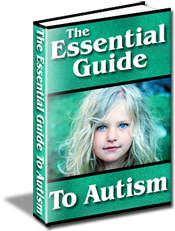Most Common Features of Autism
Click Here To Know The Simple Methods To Effectively Spot The 31 Signs of Autism
The autistic disorder is mainly characterized by the impaired social interaction as well as by the refusal of the patients to respond to their names or react to other people?s eye contact. Autistic children can hardly integrate voices and usually look for facial expressions to give them cues about the behavior. They are unable to understand or show feelings and their behavior has a negative impact on the others.
Most of them cannot express themselves by voice; the ones who do that will refer to their own person by name instead of ?me? or ?I?. They engage in repetitive actions and can even reach to self-hurting behavior. Normally, autistics do not show interest in other people?s topics and talk in own favorite topics.
Autism makes his patients vulnerable to all types of sensors. Their reduced response to pain turns into anxiety while listening to an abnormal sound. They mostly hate being touched and usually resist cuddling. Autism symptoms are developed in the first three years of life and last life-long. The most important features of autism are impaired social interaction, limited interests and actions and communication problems. The autistic disorder varies from easy forms with children able to develop basic language skills, to a severe form when patients cannot communicate at all.
The development problems beside other children their age start at about 18-36 months when they reject persons, loose language or social skills they may have already accumulated. In time they get to hardly engage in social interactions and avoid eye contact; autistic patients like to be alone, resist affection or accept hugs passively. Parents are most affected by the child?s lack of attention or joy at their sight.
These patients tend to live a wildly life as facial expressions or gestures do not mean anything. They hardly get to understand the feelings or wishes of others and usually respond only to routine questions or cues as they are unable to differentiate different people?s actions and feelings. Autistic disorder makes patients resist changes in their routine environment and even react aggressive by breaking things, attacking people or hurting themselves; their tendency of doing these things occurs mostly when they are upset, angry or when something bothers them.
Most of the autism sufferers remain silent during their lives; some of them though seem to begin talking in the first 6 months when they suddenly stop developing. Some develop delayed language skills but most of them must be taught to communicate by signs and special equipments. Those who manage to learn a few words cannot bind them into sentences and mostly use them senseless or in repetitive order. A characterizing feature of autism is echolalia making the patients repeat words or phrase they have heard even several weeks before. It usually goes by at the age of three. Autistic children confuse pronouns and change the meaning of ?me? or ?I? according to the person speaking.
Early and proper treatment and care is essential for them to learn at least basic skills and communication means.
For greater resources on Autism or especially about signs of autism please click this link http://www.autism-info-center.com/signs-of-autism.htm
Labels: abilify_autism, acceptance_autism_book, activity_autism, adult_autism, america_autism_society

